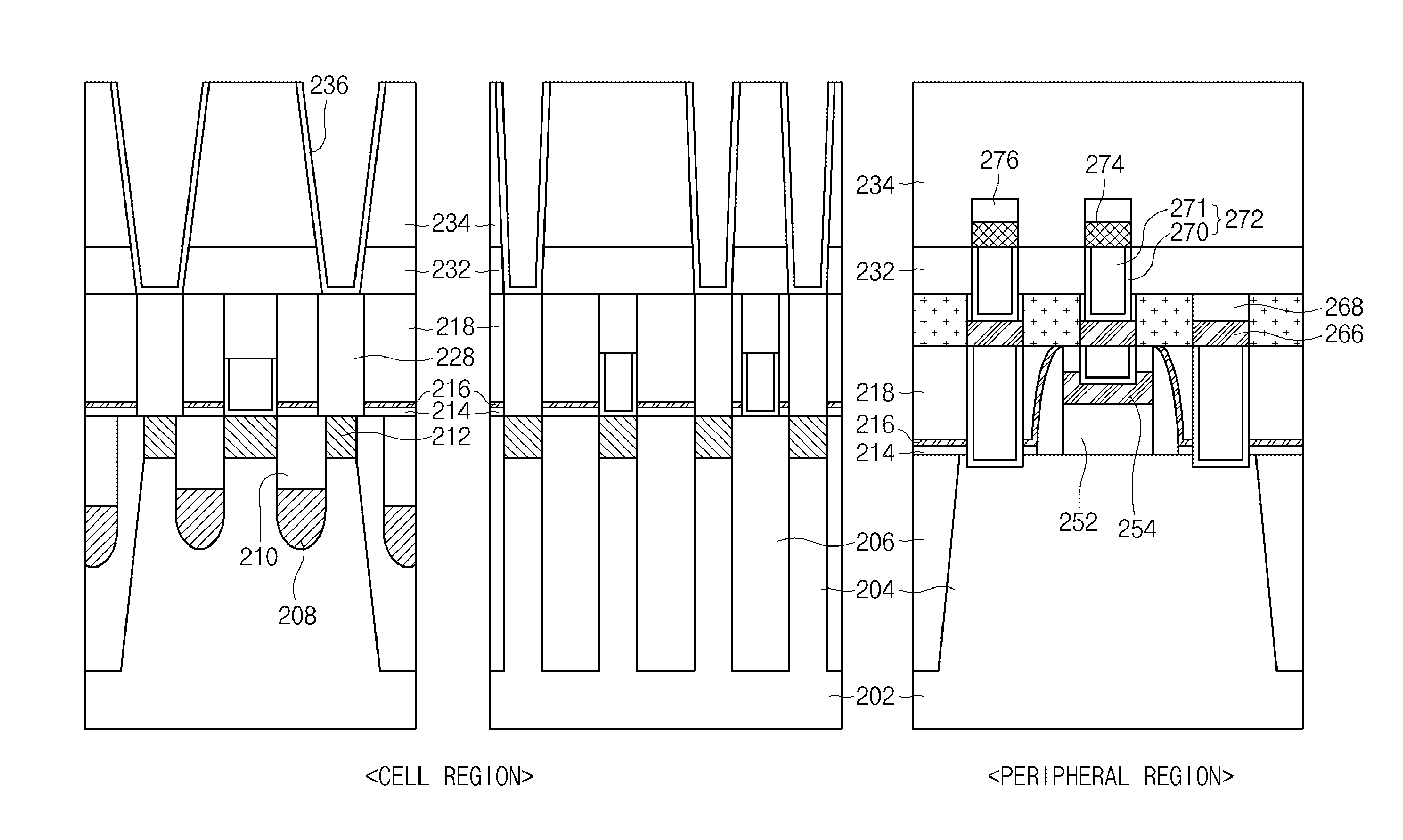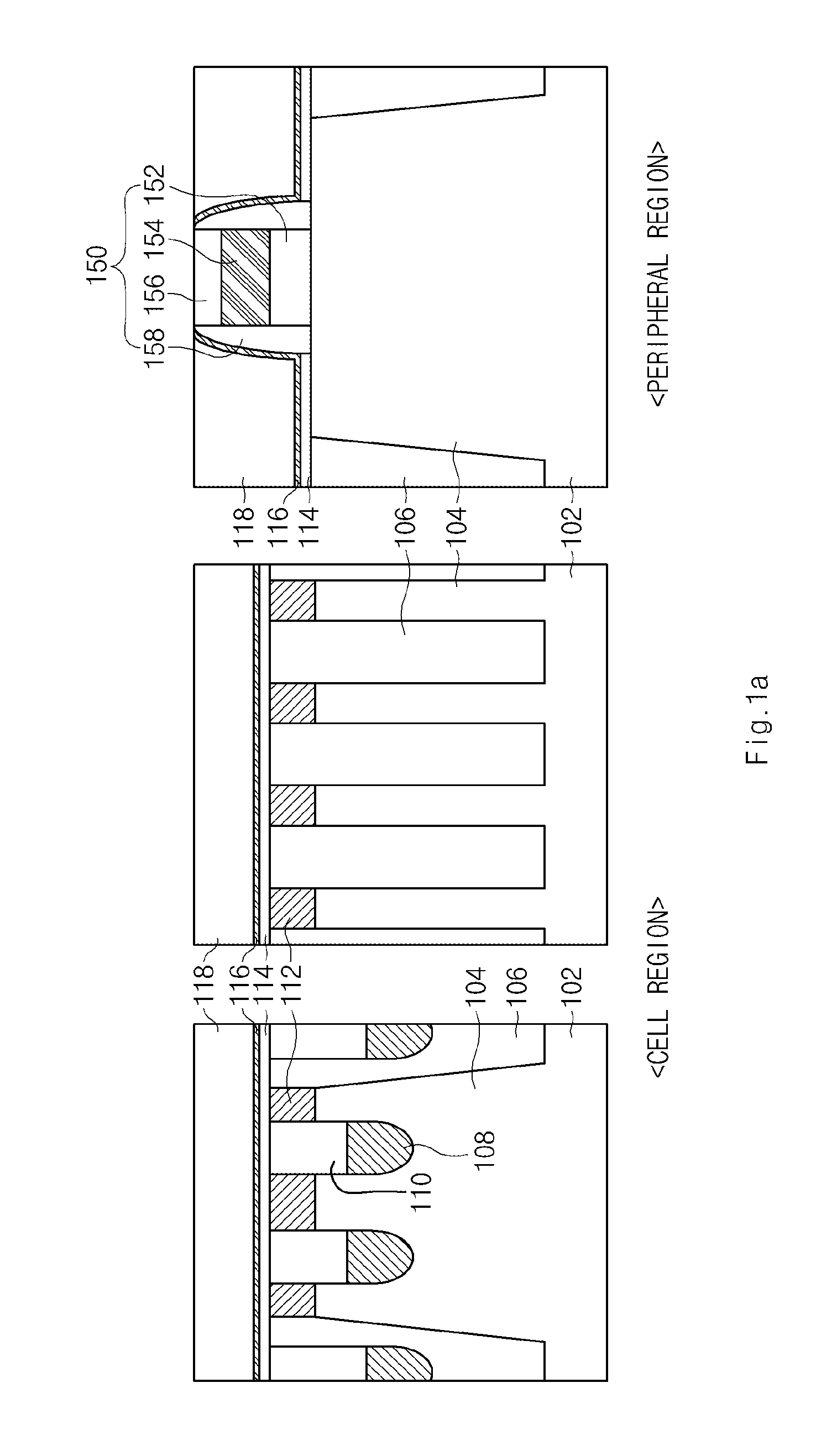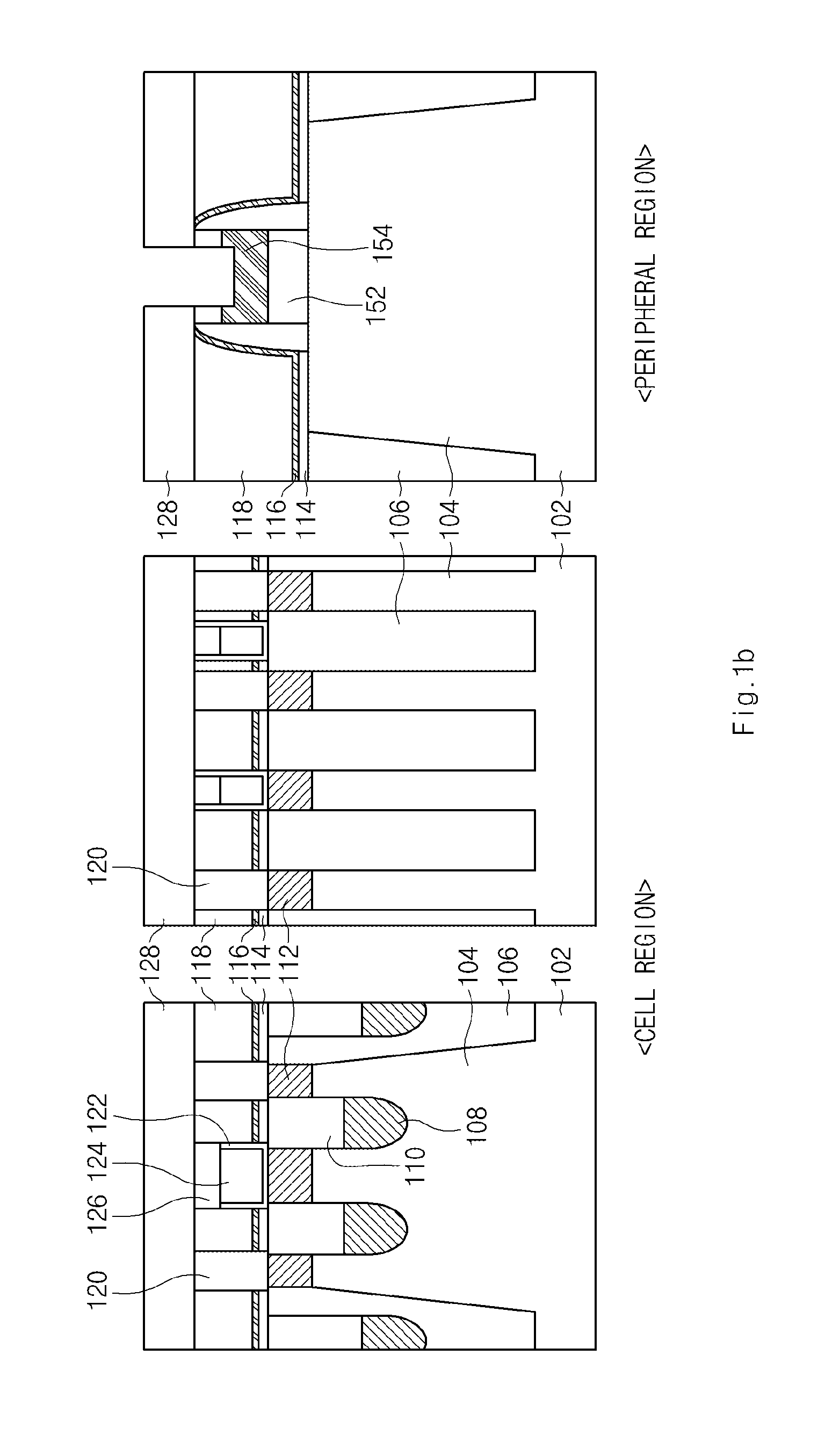Method for manufacturing semiconductor device
a semiconductor device and manufacturing method technology, applied in the direction of semiconductor devices, basic electric elements, electrical appliances, etc., can solve the problems of increasing error, increasing contact resistance, and reducing the efficiency of the device isolation region, so as to achieve the effect of suppressing the parasitic capacitance encountered between neighboring bit lines
- Summary
- Abstract
- Description
- Claims
- Application Information
AI Technical Summary
Benefits of technology
Problems solved by technology
Method used
Image
Examples
Embodiment Construction
[0026]Reference will now be made in detail to embodiments of the present invention, examples of which are illustrated in the accompanying drawings. Wherever possible, the same reference numbers will be used throughout the drawings to refer to the same or like parts.
[0027]Embodiments of the present invention relate to a technology for increasing the reliability of a semiconductor device. In particular, the embodiments of the present invention relate to a method for manufacturing a semiconductor device, which can minimize a step difference between the cell region and the core and peripheral region (hereinafter referred to as ‘peripheral region’) when forming a metal line for coupling constituent elements of the cell region to those of the peripheral region.
[0028]A method for manufacturing a semiconductor device according to the embodiments of the present invention will hereinafter be described with reference to the drawings.
[0029]FIGS. 1A to 1D are cross-sectional views illustrating a...
PUM
 Login to View More
Login to View More Abstract
Description
Claims
Application Information
 Login to View More
Login to View More - R&D
- Intellectual Property
- Life Sciences
- Materials
- Tech Scout
- Unparalleled Data Quality
- Higher Quality Content
- 60% Fewer Hallucinations
Browse by: Latest US Patents, China's latest patents, Technical Efficacy Thesaurus, Application Domain, Technology Topic, Popular Technical Reports.
© 2025 PatSnap. All rights reserved.Legal|Privacy policy|Modern Slavery Act Transparency Statement|Sitemap|About US| Contact US: help@patsnap.com



